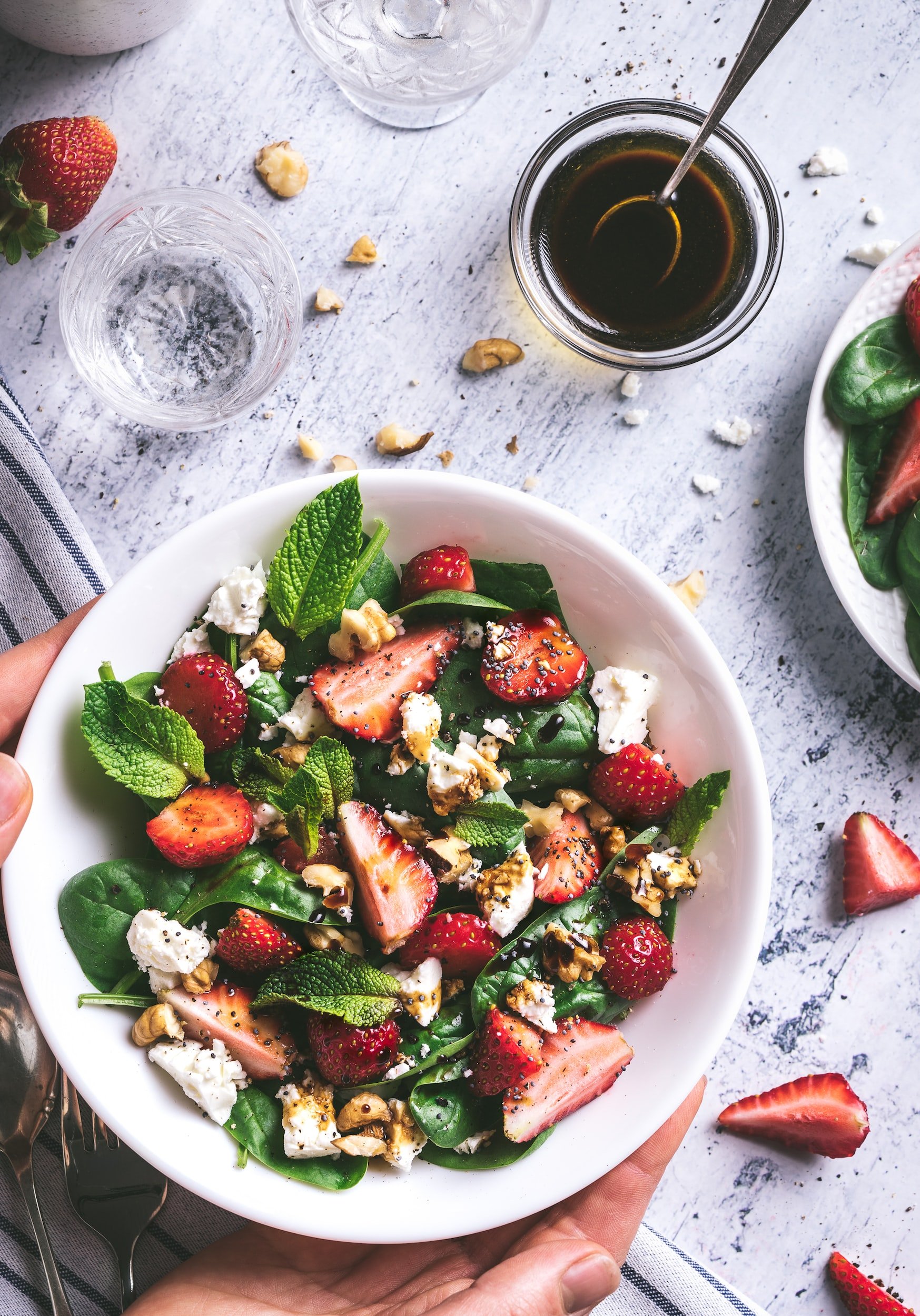PILLAR OF WELLNESS: MENTAL HEALTH AND THE FOOD WE EAT
Just how food affects our mood…
I’m not sure about you, but it wasn’t really until my mid (probably late!) 20’s that I really started to think about what I ate. I would survive on a diet of hot chips, red wine, cigarettes and chocolate - to say that I traumatised my body is an understatement.
It takes something, an event, changes, the way that we feel before we start to think about what we are eating and I think that I’m fairly safe in saying this thinking, doesn’t really hit the idea of mood, mental health and our diet! Sure, we know about the relationship that sugar has with us, maybe even the impact that ultra processed food has but beyond that? It certainly wasn’t on my radar.
Is there a link between our diets and our mental health? Are the foods that will boost our mood? Is it actually possible to eat for happiness? Sounds pretty outrageous but there is science behind this thinking, which at the end of the day is amazing because knowledge is power. How often do you have a hugely busy day / week? You say to yourself,
“Just this once” or maybe, “I deserve this!”
As you casually hit the drive-though on the way home, albeit with that little ball of guilt in the pit of your stomach. Maybe it’s the act of numbing that makes you reach for the freezer and the double choc brownie ice cream and then chase it down with the large pinot (go on, I know that I’m not the only one that has been here!). Whether it’s time poor decision making, or desperate attempts at numbing and misguided attempts at self-soothing, high stress times call for a hit of feel-good moments right?
Yes, they absolutely do BUT are these acts actually making us feel good, no. It usually makes it worse. Far worse. Our mental health is inextricably tied to our gut health and what we ingest will have a direct impact on how we feel. I’ve recently been reading and listening to Felice Jacka who is the Professor of Nutritional Psychiatry, Director of the Food & Mood Centre at Deakin University, and founder and president of the International Society for Nutritional Psychiatry Research. She’s even been given the Order of Australian Medal (OAM) for her services to Nutritional Psychiatry.
So, what does this all mean? A quick summary is that poor diet for example, lack of exercise, smoking, and factors like being overweight and obese, lack of sleep; lack of vitamin D etc. as well as stress. Each of these factors influence our gut health, this in turn hits our immune system. This then flows on and impacts almost every aspect of our health - including brain function and health. If we don’t eat enough nutrient-dense foods such as fruits, vegetables, wholegrains, fish then it can have a detrimental impact on our immune system as well as affecting gene expression, gut microbiota and other aspects of physical and mental health. Seems like there really is something to that saying, “we are what we eat!”.
Now, this post isn’t to scare you or guilt you into anything - although it can feel like a kick to the stomach. It’s an invitation to take a really good look at what habits you’ve got. What is it that you are eating? What choices are you making when it comes to your lifestyle? Remember, we are not aiming for perfect because that’s when everything comes undone. It’s so that if you have choices, what is the best choice that you can make?
I work with clients that come to me and say that they are feeling crap or that they have super low energy. They make bad decisions. They don’t feel like themselves. I’ve definitely been there and it is something that I had to work with experts in this field to get myself back into a place where I felt like me again, actually, like the best version of me! If you are existing on a diet of fast food, ultra processed foods, sugary drinks and very little sleep (this is me after the birth of my first child, I’m pretty sure that we kept the burger place across the road in business!!) and I felt awful! I was so much more prepared with my second pregnancy, from the preconception to postpartum (we had also moved away from that burger place, so that helped more than I’d like to admit). A trick that I’ve learnt and I now swear by is:
“If you’re just sort of feeling off in a consistent way or having some unusual thoughts, ask yourself what you ate in the last 24 or 48 hours, and see if there's any pattern associated with it”
Start with empowerment
As I’ve said, there is nothing about this to beat yourself up about. You get the opportunity to get curious, this is where mindfulness practices can also support you. Do go at new habits or changes with anger or fear. Dial up the kindness and actually empower yourself. Here are some ways to revamp what you eat that will help to get you feeling amazing, mind AND body.
START WITH THE RAINBOW
Get more plant food in, such as vegetables, salads, fruits, legumes (eg.chickpeas, lentils, tofu), whole grains and raw nuts; fish and lean red meats; and healthy fats such as olive oil - grab the herbs and spices, they are an easy way to get more nutrients into your diet. Get your fill of fiber and fermented foods, the recommendation is around 50 grams per day. Vinegars such as balsamic and apple cider also appear to be very beneficial to the gut, as are the fermented foods such as sauerkraut, kimchi, kombucha, tempeh and other such traditional foods. Isn’t it funny that the ancient practices when it comes to what we consume comes back to play!
WHAT TO EAT LESS OF
Yep, you guessed it - those ultra processed foods. They contain high levels of unhealthy fats, sugars and refined carbohydrates, as well as other components that are have particularly nasty impacts on our gut health, such as artificial sweeteners and emulsifiers.
Alcohol is another to look at. I know, it’s a fairly divisive conversation but when we are looking at our health and wellness, mind and body - it has a place on the table. Take note of how you feel before, whilst and after drinking alcohol.
Caffeine is another (gosh, I come up against this one more than I’d like to admit - it’s my weakness) but it plays a massive part in how I feel on a daily basis.
START SMALL, START SLOW, START EASY
This is all great but food costs are high, time is low and the whole thing can be, well, overwhelming and can quickly become too difficult. If you were a coaching client then I’d suggest that you start really small and make changes that you don’t really even notice. An example of one that I’ve done for myself is swapping my first coffee for the day to decaf. I don’t notice it but it has had a wonderful impact.
Make a note of one thing that you can change, focus only on that and slowly implement others until you notice that you start to feel better. Keeping a diary is a great idea or incorporating your thoughts in your Morning Pages is another great tool. Take the emotion away and put on the science coat - how do you feel? How do you feel in your body? How do you feel in your mind as the days move by? If something doesn’t work, that’s great - you are now an experimenter! Keep experimenting. I also think that it’s worth mentioning that an all or nothing mindset doesn’t work. You are far better off looking at the mindset of - “I deserve a treat because….” and making a better choice, than saying that you will never allow yourself to make a bad decision. I absolutely have treats but I do it when I want to, not because I am numbing or trying to fill something.
What is something that you’ve felt that is hurting your mind when it comes to what you are eating or drinking? Perhaps you’ve already made a clever swap? Feel free to share, I love hearing clever swaps!


